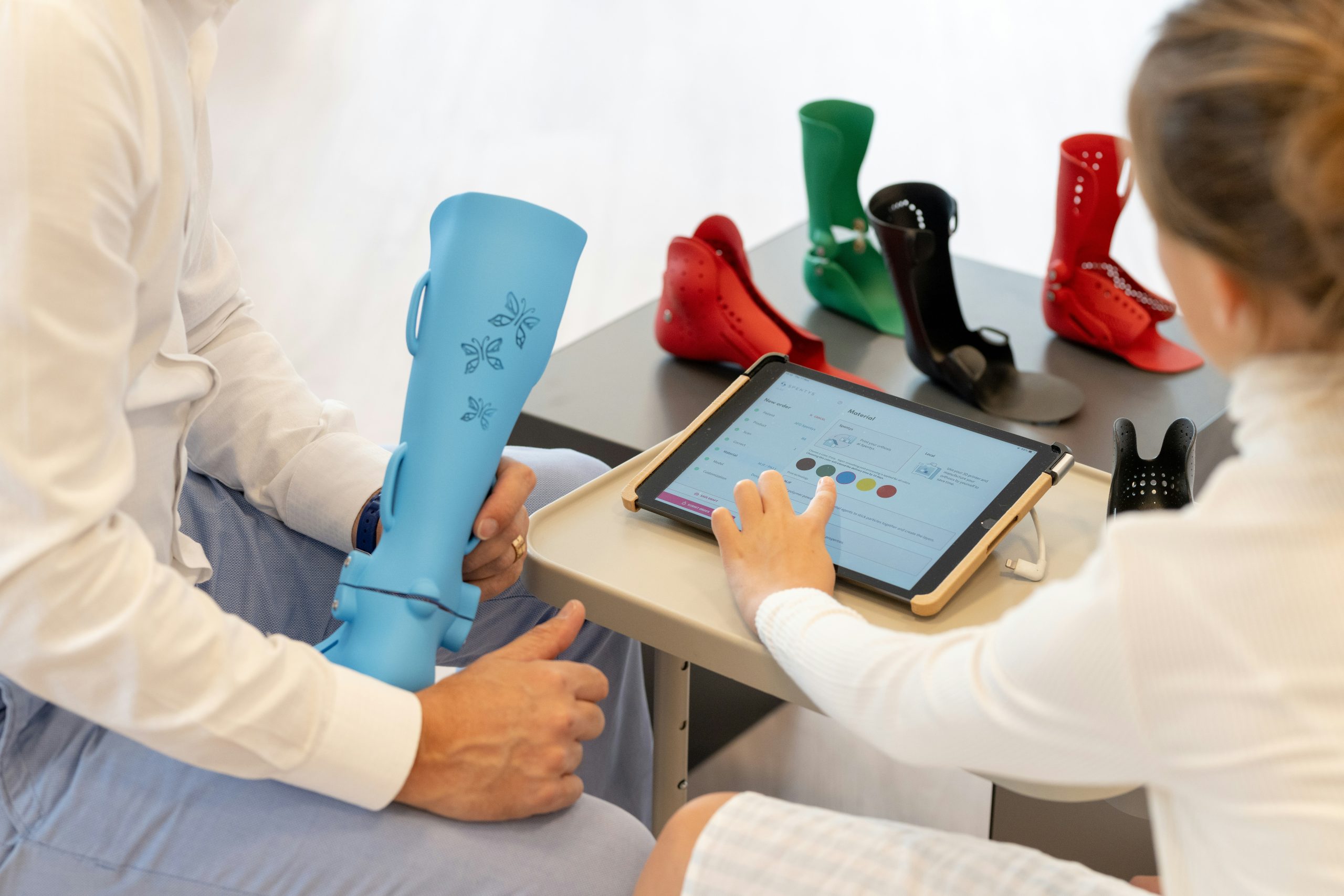How can innovative healthcare insights lead to future treatments? Photo credit: Tom Claes via Unsplash
In recent years, the healthcare industry has seen an influx of innovations that are revolutionising the way we diagnose, treat, and manage health. From groundbreaking medical technologies to unconventional approaches in patient care, these advancements demonstrate the value of continuous evolution in the medical field.
I spoke to award-winning healthcare innovator Ariana Adjani, an Oxford alumna and co-founder of Fine Treatment. Her company developed “Dr Allen’s Therapeutic Device”, a non-invasive treatment for various chronic conditions which utilises “thermobalancing therapy”. During our conversation, Ariana discussed how advancements like these empower patients to take a more active role in their care, reflecting the broader shift in the UK’s healthcare system towards more personalised and self-managed solutions. As a governor at Oxford University Hospitals NHS Foundation Trust, she also shared her insights on the impact of innovation on patient care and her vision for the future of healthcare.
Tell us about your academic background and what motivated you to pursue a career in the field of healthcare innovation.
Most of my family members are medical doctors, and seeing the amazing impact of their work on their patients’ health from an early age ignited my drive to make a difference in people’s lives. I grew up enjoying maths and other STEM subjects and over time I developed an interest in the efficient use of limited resources. Studying management at the London School of Economics gave me a broad understanding of all areas of business, which I then strengthened during my studies at the Judge Business School at the University of Cambridge. Later, when I studied at the University of Oxford, I deepened my curiosity in economics, research, and innovation; this laid the foundation for my interest in healthcare economics and patient data analysis.
Why are innovation and continuous advancements in healthcare important and what limitations exist within traditional approaches?
The need for novel medical technologies cannot be overstated. While conventional treatment options are designed to help patients overcome their conditions, many are associated with adverse side effects and high costs. Thus, it can be beneficial for patients and healthcare providers to explore innovative treatments. The recent coronavirus (COVID-19) pandemic further highlighted the critical importance of continuous advancements in healthcare. Effective at-home treatments help to reduce exposure to viruses and bacterial infections, lower treatment costs, and enable a more efficient allocation of limited hospital beds. These are exactly the issues we, at Fine Treatment, are working hard to address.
Could you tell us more about Fine Treatment and the novel medical technology you have developed?
Fine Treatment is a specialised research and development and medical devices company. We have a patented medical technology, known as thermobalancing therapy, for the non-invasive treatment of chronic pain and various long-term health conditions such as kidney stones, prostate diseases, and lower back pain. The therapy works through the improvement of capillary blood circulation in the affected organs, locally and continuously for a prolonged period of time. It is achieved via local temperature regulation.
Our novel therapeutic Dr Allen’s Device serves as the means for implementing thermobalancing therapy. These wearable MedTech devices contain one or more thermoelements and a supporting garment, such as a belt, and need to be worn over the affected area. One of the key defining features of our treatment is that it is side-effect free. Treating people effectively and without causing additional health problems is at the core of what we do at Fine Treatment.
How has the development of Dr Allen’s Device introduced something new and impactful to the field of healthcare?
Our priority was to create a product capable of delivering significant results in the treatment of chronic conditions while minimising the risks often associated with traditional alternatives. Our devices stand out in the healthcare industry because they are, for instance, the world’s first to reduce the size of kidney stones (regardless of size or type) without requiring surgical or hospital-based interventions.
Dr Allen’s Device is also the first treatment globally to reduce the size of benign prostate enlargement—essentially a non-cancerous tumour of the prostate gland— without surgery or adverse effects. This is particularly important because by age 60, 50% of all men will experience benign prostatic hyperplasia (an enlarged prostate) and this number increases to 90% by age 80.
What has been your experience with medical research and clinical trials, and how have these efforts influenced the development of your technology?
Here at Fine Treatment, we have already completed five clinical trials and have published the data in leading scientific journals. The high treatment efficacy observed in patients has sparked interest in what we do across the wider business and medical community, and we often present our findings at international medical conferences. By raising awareness, we’re enabling healthcare professionals to offer their patients the treatment tools for an enhanced quality of life and dignified longevity.
What role do you believe sustainability plays in the development of medical technology and how do you integrate sustainable practices into your work?
It is absolutely essential to consider sustainability during the development of new medical technologies. Having this as a priority leads to improved resource efficiency and reduced waste. At Fine Treatment, we’ve developed a reusable product that delivers a highly effective, non-invasive treatment, while minimising energy consumption and carbon emissions. The unique design of our devices allows them to maintain the required optimal temperature without the use of external energy sources, making them eco-friendly and sustainable. Additionally, we aim to reduce the carbon emissions associated with travelling to multiple hospital appointments by providing patients with a home-use solution.
What challenges have you faced during your journey in the healthcare industry and how have you overcome them?
The biggest challenge appeared at the early stage of the business when the world economy was hit by the global financial crisis—it had a massive knockdown effect on the funding for medical research. Our whole business strategy had to be reassessed and we had to design a new plan from scratch. The main motivation was our belief in the necessity of our technology for patients. So, we persevered and kept going!
Lastly, what is your vision for the future of Fine Treatment’s medical technology and the broader healthcare innovation industry?
Enhancing the capacity of out-of-hospital and community care is one of the key priorities recently announced by the NHS leadership, in a bid to provide better patient care at a more manageable cost. I anticipate that the medical technologies enabling this shift, including virtual wards and Hospital at Home (HaH) services, will become more prominent among the new healthcare innovation trends.
In line with these trends, Fine Treatment’s unique MedTech treatment offers a novel out-of-hospital mode of delivery of healthcare. This could reduce the burden on healthcare systems, making them more efficient and helping patients to feel in greater control of their treatment plan.





